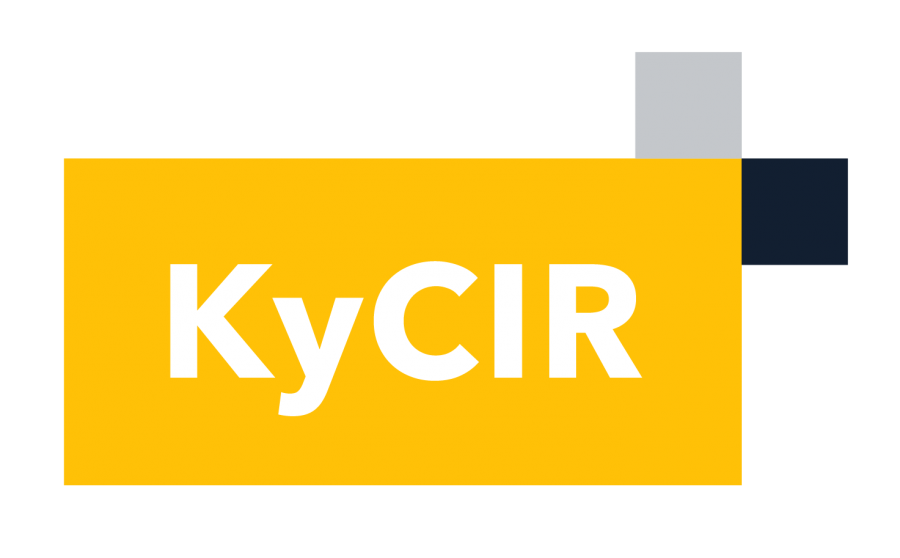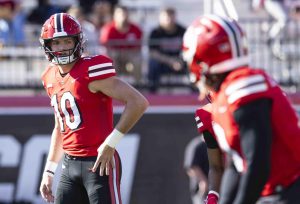Louisville’s Aspire Academy splits with partner school, controversial recruiter
June 22, 2018
Editor’s Note: This story was originally produced and published by the Kentucky Center for Investigative Reporting. You can find the original publication here.
Aspire Academy has parted ways with its academic partner and the controversial international recruiter who brought much of the team’s talent to Louisville — a week after one of those star players left early for Western Kentucky University.
The team’s new academic partner will be Holy Cross High School: the third school in the basketball prep academy’s three-year existence. Rick Blackwell, the new president of DeSales High School and a member of Louisville Metro Council, said it was a “mutual parting of ways.”
A KyCIR story published in April found that basketball prep academies like Aspire have become landing places for international players who might not be eligible to play basketball at a traditional high school. These programs entice top recruits with athletic scholarships, mid-season transfers and a national playing schedule.
This announcement comes just a week after Aspire’s undisputed superstar, Charles Bassey, committed to Western Kentucky University. Bassey was enrolled at DeSales this year as a junior.
He reclassified as a 2018 prospect and enrolled at WKU last week. Blackwell said he couldn’t comment specifically on Bassey, but generally, “Reclassifying isn’t something that we’re doing.”
“We’re a four-year institution,” Blackwell said. “Four year.”
Aspire Academy President Roger McClendon said the move to Holy Cross wasn’t related to Bassey leaving the team, which he said Aspire wasn’t involved with.
McClendon also said he wasn’t sure if Bassey actually graduated.
“I don’t think he has a diploma from DeSales,” said McClendon.
To reclassify, a player has to meet strict requirements — including graduating from high school, according to Rick Allen, an NCAA expert with Informed Athlete.
“They have to graduate from the high school, which means they have to satisfy all the same requirements as any student at that high school,” said Allen.
NCAA rules require a final transcript to be submitted by February 1st of the next year, said Allen.
McClendon said he didn’t know the circumstances under which Bassey enrolled at WKU.
“That doesn’t mean he has not gone to summer school or some other way,” McClendon said. “I don’t have that information.”
Head coach Jeremy Kipness couldn’t be reached for comment.
McClendon said Aspire and DeSales had “a great relationship.”
“We loved them, they loved us,” said McClendon, a former Yum! Brands executive.
But Blackwell, who was a DeSales board member when the team partnered with Aspire, said the partnership didn’t turn out to be what DeSales expected.
“We were led to believe that all of the [players] would be coming to DeSales as students,” said Blackwell.
Instead, Blackwell said, by the end, they were down to just a few students: the international students who had to be enrolled in a school that can sponsor the F-1 visas that allow them to study in the United States.
“I don’t think any school would make a decision to allow a group to use their facilities in the way they did for three tuitions,” said Blackwell.
“The recent, high-profile case of the reclassifying — that’s not us.”
McClendon said Aspire’s decision was about the team’s growth and the desire to provide housing to the players, who were living in a rented house in Middletown.
The Archdiocese of Louisville is providing housing to the team in dorms formerly used for retired priests, said Danielle Wiegandt, principal of Holy Cross High School. The school will also be the team’s academic partner.
Wiegandt said she was a little hesitant to take on Aspire, but she has confidence in the team’s new leadership under McClendon.
The team has parted ways with Hennssy Auriantal, an international recruiter, according to McClendon. Founder Michael Kipness, a horse racing handicapper who goes by “The Wizard,” is no longer in charge of the team but remains a board member, according to Wiegandt. Michael Kipness could not be reached for comment.
Wiegandt said McClendon is extremely focused on the well-being of the student-athletes and their lives “when the ball stops bouncing.”
“We do have a very similar mission,” Wiegandt said. “Their mission is to use basketball to improve student life and to help them grow holistically as a person — academically and socially. That’s exactly the mission we have at Holy Cross.”
Holy Cross’s basketball team will have priority for the school’s facilities, and the Aspire students will have to meet the same level of academic rigor as the other players, Wiegandt said.
Aspire can’t play member schools from the Kentucky High School Athletic Association during the regular season, and instead plays other basketball prep academies from around the country. It also can’t issue the visas for players like Bassey, a Nigerian native and top five recruit nationally.
Bassey was brought to Aspire by Auriantal, Bassey’s legal guardian and a controversial figure in the basketball prep academy world.
Auriantal has brought at least 45 international high school basketball players to the United States in just the last five years, according to a KyCIR investigation. Many of the players he brings over enroll at three or more basketball prep academies in the course of their high school careers.
Auriantal’s recruiting methods have caused problems for some of these young men, including an NCAA investigation into a player that enrolled at WKU last year.
Moustapha Diagne was benched for half the season while the NCAA investigated his relationship with Auriantal. He was eventually cleared and is playing for WKU currently.
Bassey is the third player connected with Auriantal to enroll at WKU since 2016.
This story was produced by the Kentucky Center for Investigative Reporting, a nonprofit newsroom by Louisville Public Media. For more, visit KyCIR.org.













